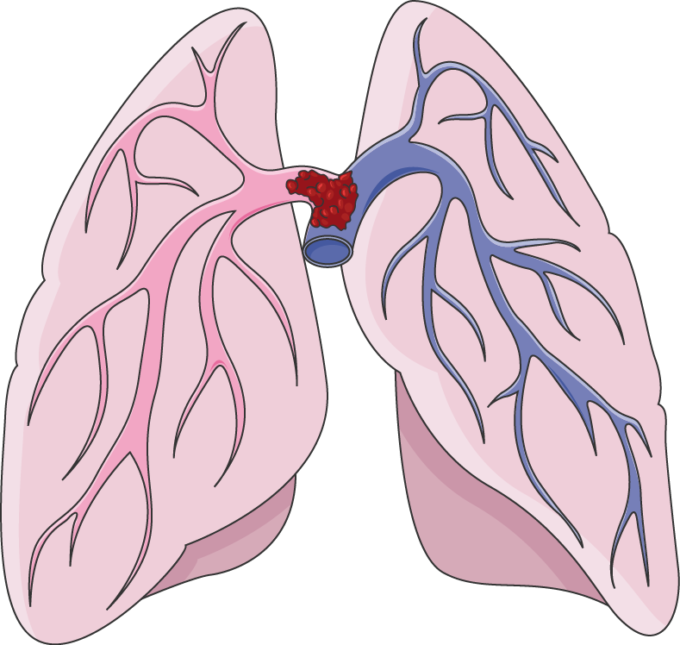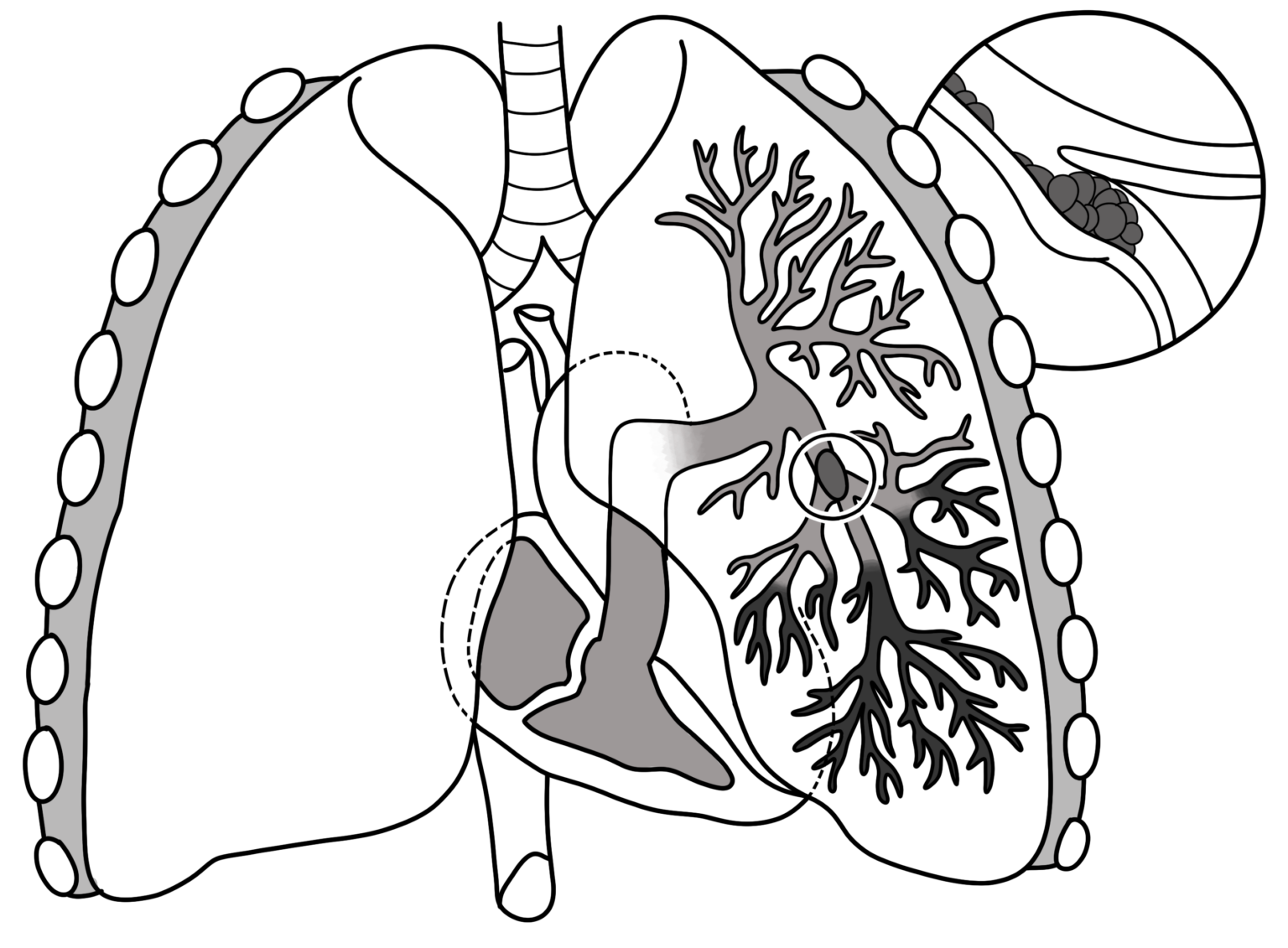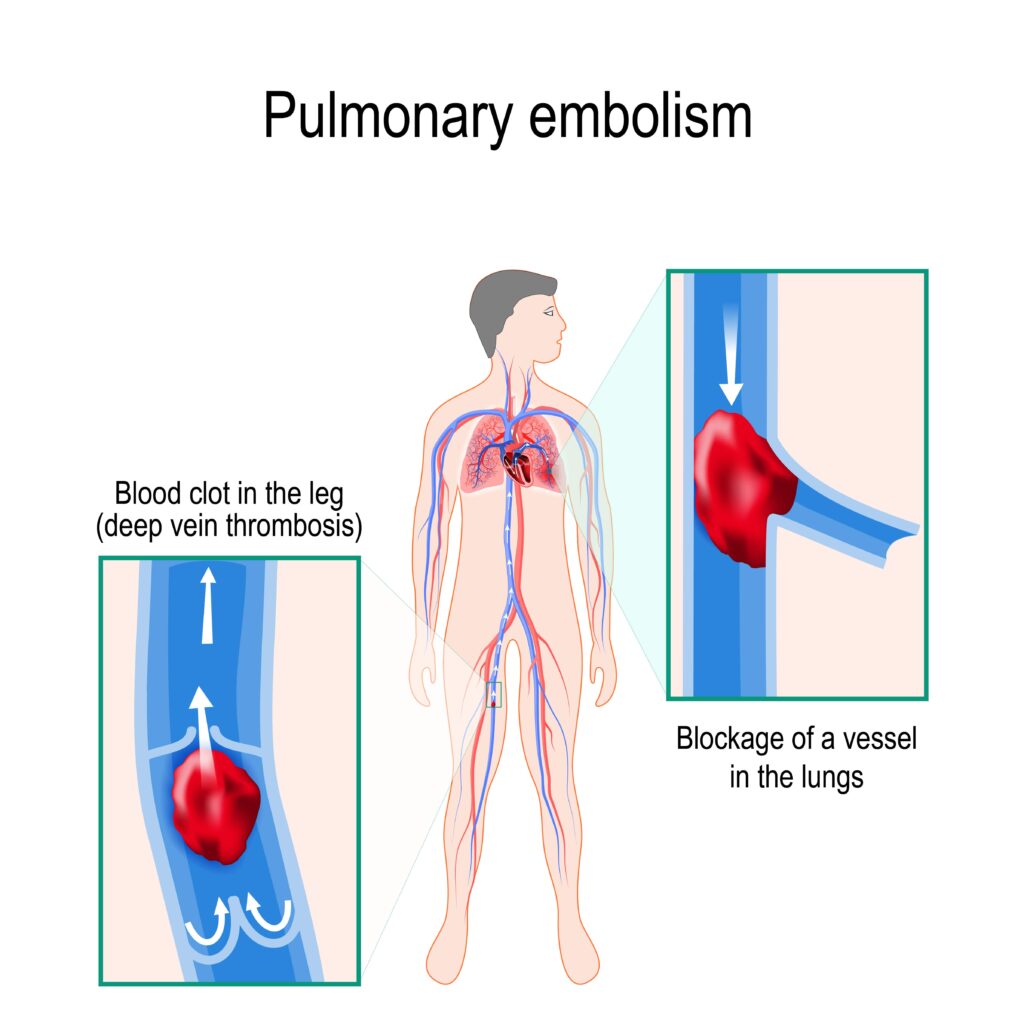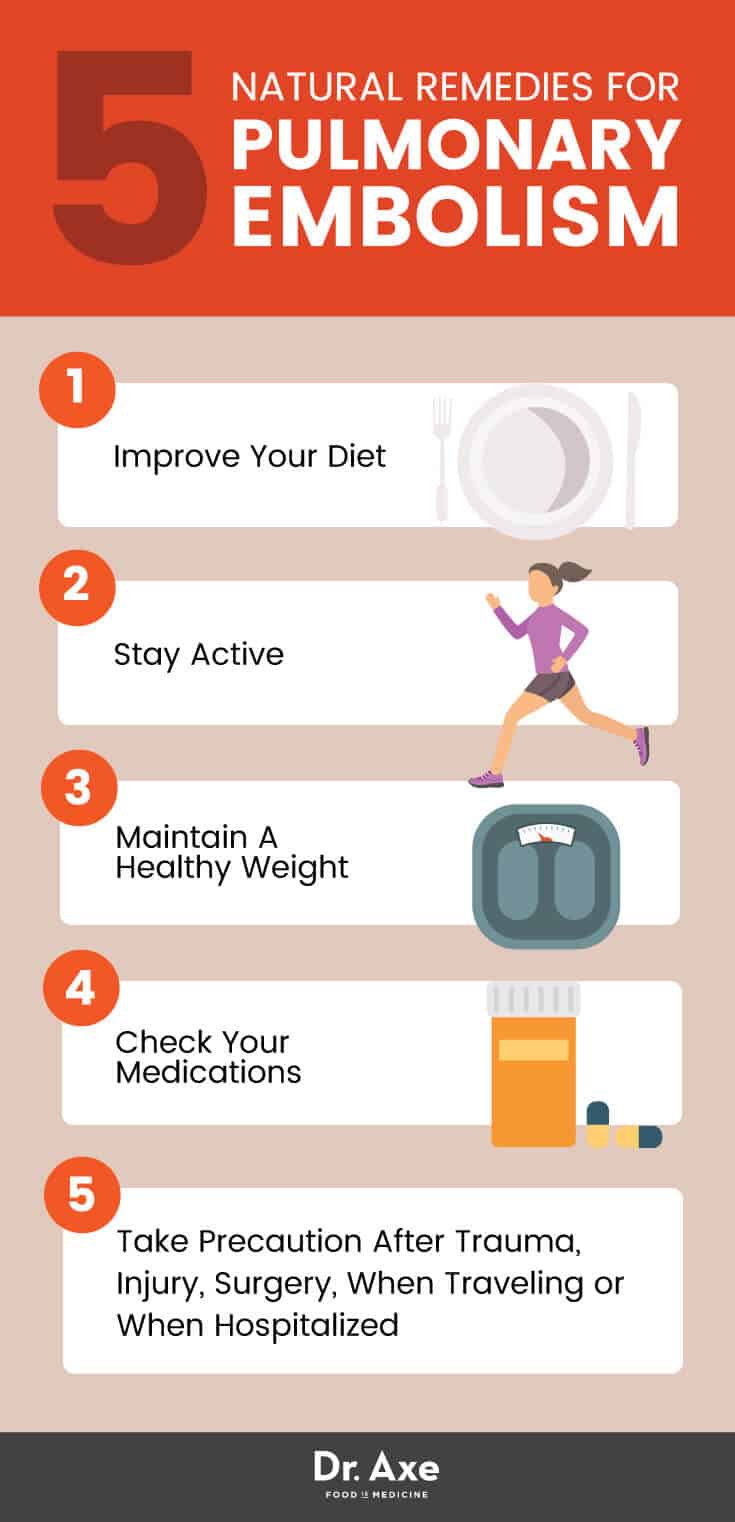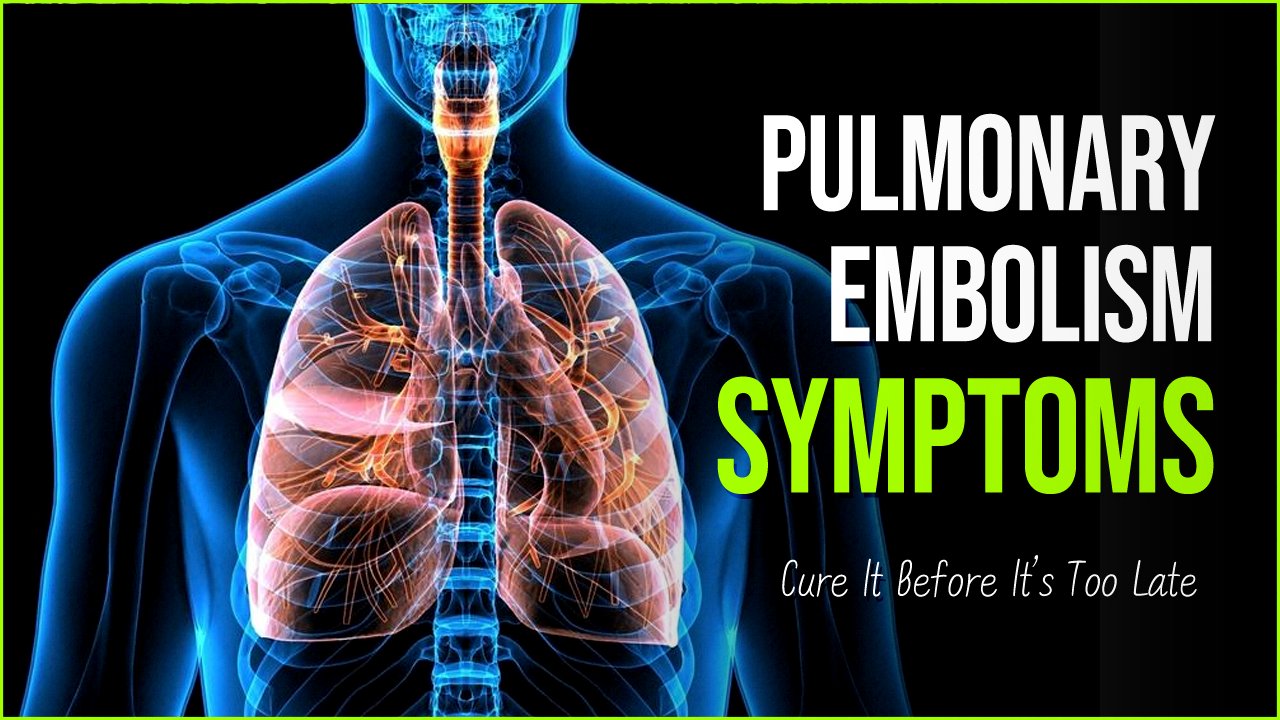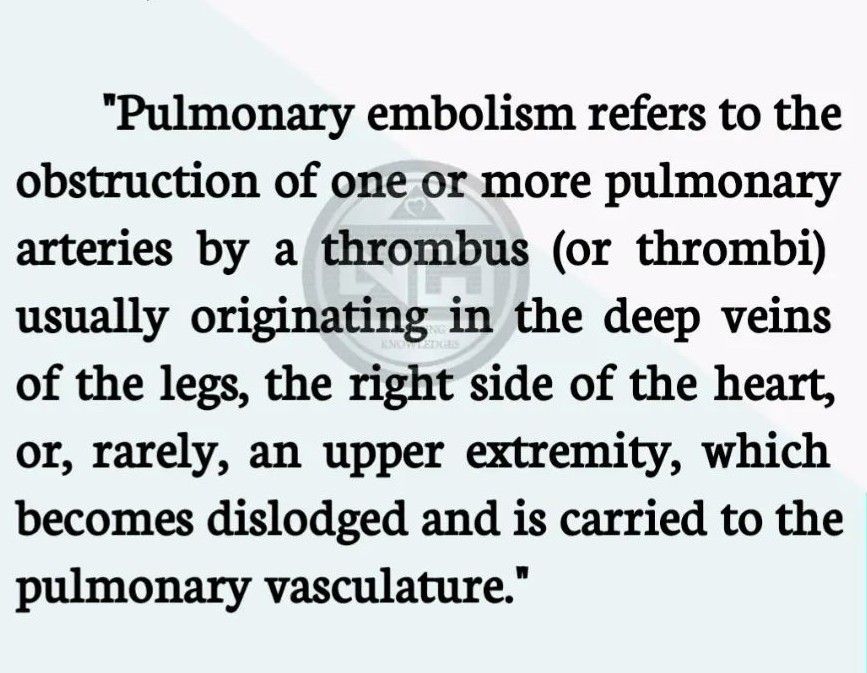Perfect Info About How To Cure Pulmonary Embolism
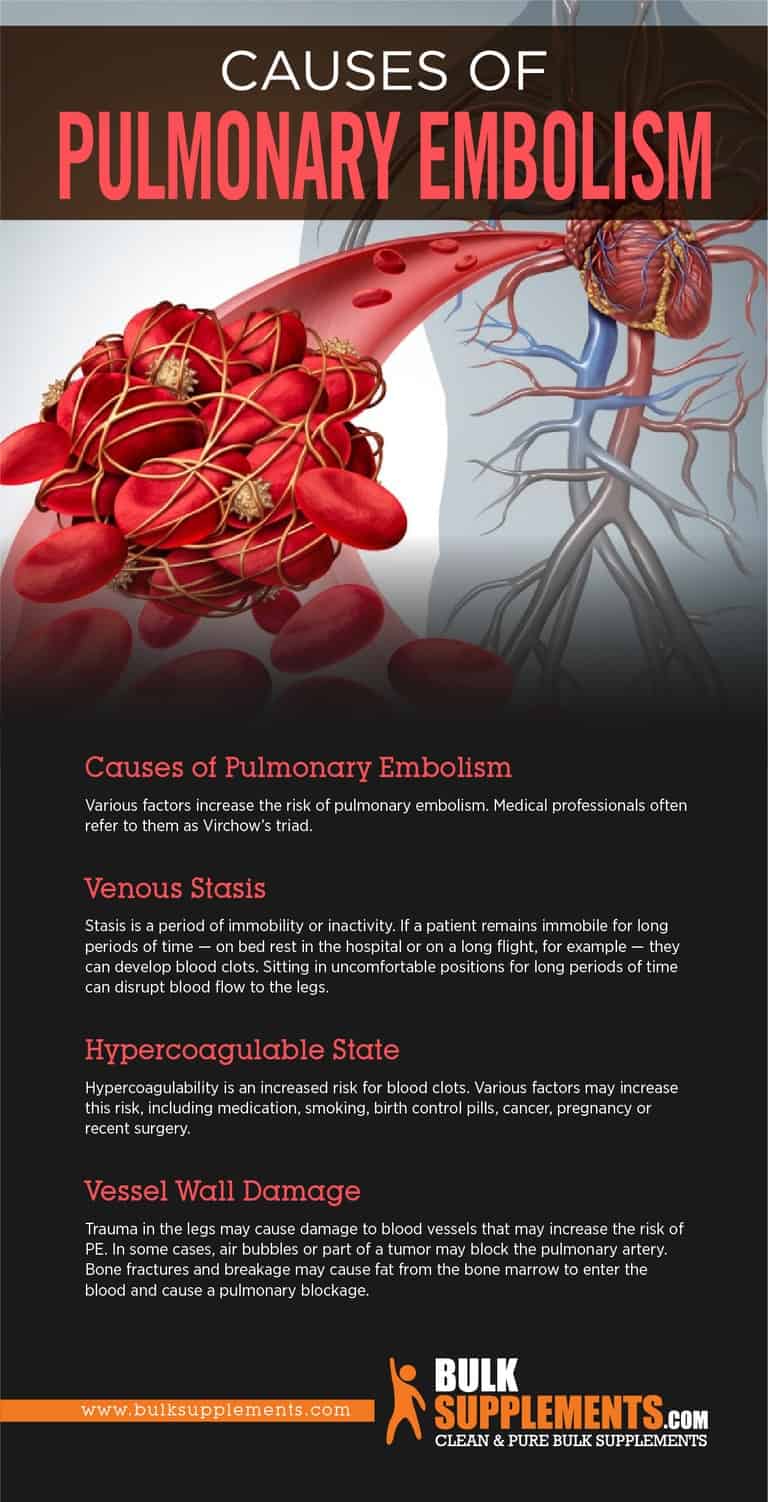
It travels to a lung artery where.
How to cure pulmonary embolism. Anticoagulation therapy for venous thromboembolism (lower extremity venous thrombosis and pulmonary embolism) in adult patients with malignancy. What causes a pulmonary embolism? Coughing and/or hemoptysis (coughing up blood) 2.
With rapid treatment, most people affected by pulmonary embolism can recover. We represent one of the few medical institutions that has a dedicated team of. How common is a pulmonary embolism?
People with a large clot. Treating most pulmonary embolisms generally involves taking medication to prevent the clot from growing and reducing the risk of new clots. Prompt treatment is essential to prevent serious complications or death.
Yale medicine provides extraordinary expertise in the diagnosis and treatment of pulmonary embolism. Learn about the treatments and care you may need, when you. Pulmonary embolism, which is most often caused by blood clots that travel to the lungs from deep veins in the legs, affects as many as 900,000 people each year in.
Treatment can include medicines, surgery and other procedures, and ongoing care. How do doctors treat pulmonary embolism, a blood clot in the lung? A pulmonary embolism (pe) is a blood clot that blocks the flow of blood to part of one lung.
A fast heart rate. The diagnosis of pulmonary embolism (pe) is frequently considered in patients presenting to the emergency department or when hospitalized. Risk factors for pulmonary embolism;
Recovery tips prevention complications contacting a doctor summary the recovery time for a blood clot in the lungs, or pulmonary embolism, can vary. Diet and medications drugs called anticoagulants are the first tools doctors reach for if you’ve had a pulmonary embolism. They’re known as “ blood thinners ” because they.
In august 2019, the european society of cardiology in collaboration with the. Home health a to z pulmonary embolism a pulmonary embolism is when a blood clot blocks a blood vessel in your lungs. If you've had a pulmonary embolism (pe), your recovery period may vary based on many factors.
Pulmonary embolism is a common and potentially fatal cardiovascular disorder that must be promptly diagnosed and treated. Treatment of a pulmonary embolism focuses on keeping the blood clot from getting bigger and preventing new clots from forming.


